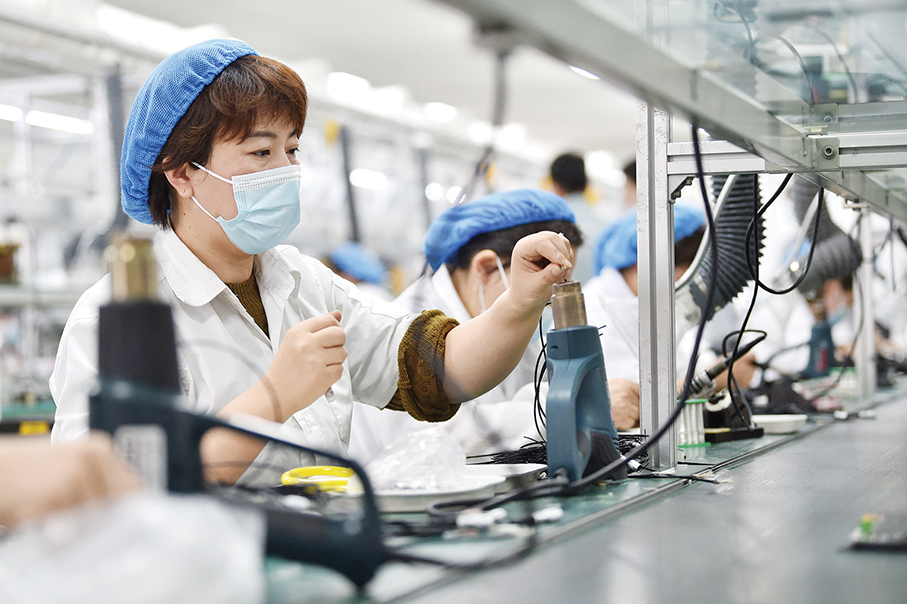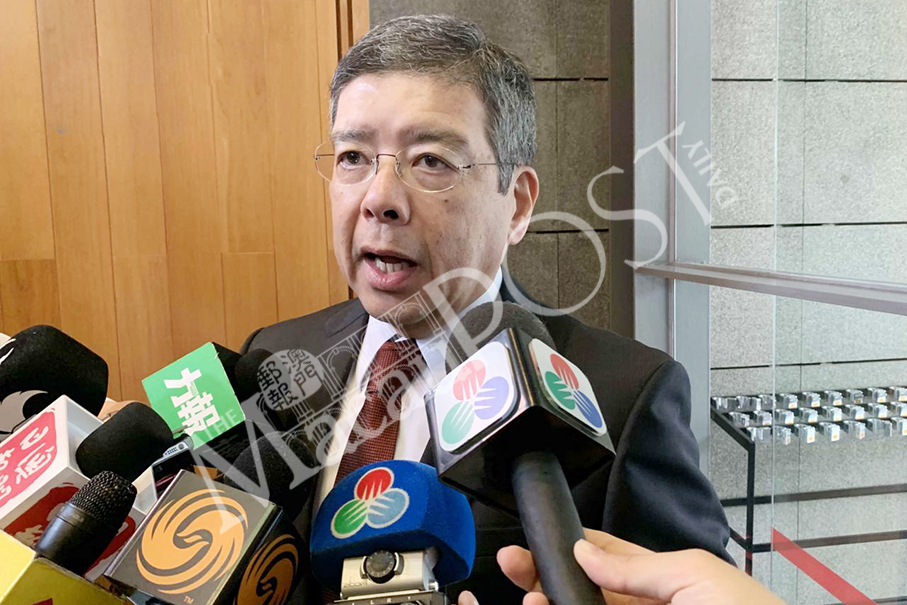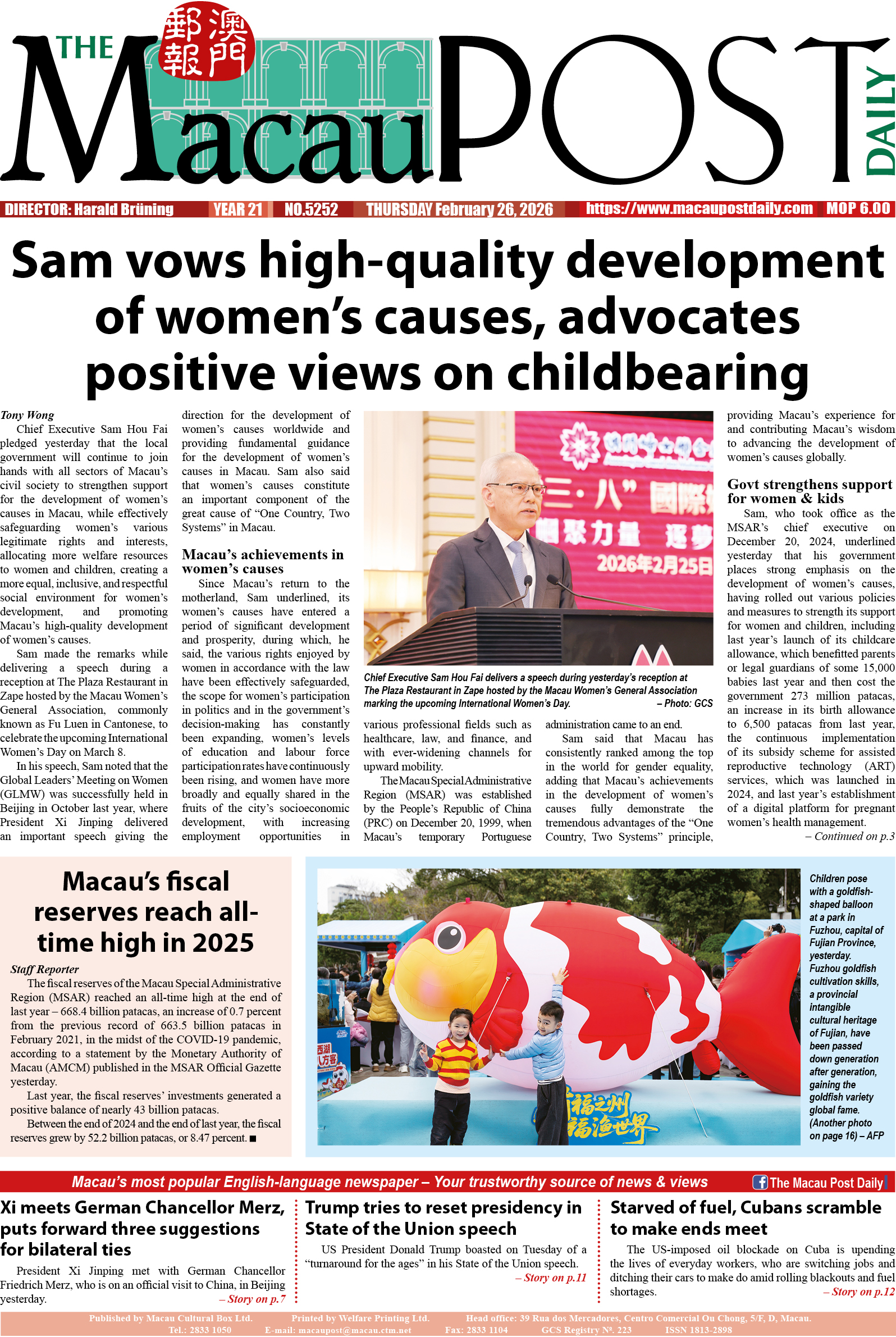Analysis
BEIJING – Mainland China’s economy was on more solid ground in the third quarter with major indicators showing positive signs of stabilization, backed by the authorities’ efforts to balance epidemic control and economic and social development.
Gross domestic product (GDP) grew 3.9 percent year on year to 30.76 trillion yuan in the third quarter, 3.5 percentage points higher than that in the second quarter, data from the National Bureau of Statistics (NBS) showed yesterday.
In the first three quarters, the mainland’s GDP increased 3 percent year on year, 0.5 percentage points faster than that in the first half of 2022, according to the NBS data.
Many major economic indicators saw significant improvements compared with those in the second quarter, with production demand gradually recovering, and prices and employment remaining stable, the NBS said in a statement.
A breakdown of yesterday’s data showed that value-added industrial output by major industrial firms jumped 4.8 percent year on year in the third quarter, 4.1 percentage points faster than that in the second quarter.
With economic activities generally perking up, the mainland’s consumer market has warmed up in the third quarter. Total retail sales of consumer goods ticked up 3.5 percent year on year in the third quarter, reversing the 4.6-percent decline logged in the second quarter.
Fixed-asset investment sustained growth momentum in the third quarter, rising 5.7 percent from the same period a year earlier, up 1.5 percentage points from the second quarter.
During the January-September period, investment in the manufacturing sector climbed 10.1 percent year on year, while investment in high-tech manufacturing and services continued rapid expansion, rising 23.4 percent and 13.4 percent, respectively.
“Generally speaking, the Chinese economy has managed to overcome negative impacts inflicted by unexpected factors, with major indicators staying within a reasonable range and positive factors accumulating,” the NBS said.
This decent growth did not come easily with policymakers unveiling a slew of supportive policies to shore up the economy. The State Council unveiled an additional 19 follow-up policies in August on top of delivering a policy package for stabilizing the economy in May in order to shape greater synergy.
Among these measures to facilitate economic stability are the central government’s ramped-up efforts to expand its tax and fee incentives and supportive policies to enterprises, offering a “timely rain” to companies in financial drought.
Official data from the State Taxation Administration showed that tax refunds, as well as tax and fee cuts and deferrals, had exceeded 3.4 trillion yuan by September 20.
Despite increasing external uncertainties, Chinese entrepreneurs and bankers became more upbeat about the macroeconomy, and urban residents were more optimistic about future income and jobs in the third quarter, recent central bank surveys have found.
Both the entrepreneurs’ and bankers’ macroeconomic heat indexes, reflecting the two groups’ views on the current macroeconomic situation, climbed quarter on quarter, according to the People’s Bank of China (PBOC).
However, the NBS warned that the global situation is still complex and grim, and that the foundation of economic recovery is not solid, stressing the importance of the full implementation of supporting measures.
Looking into the future, China will pool endeavors to support market entities and stabilize employment and prices, while expanding the effective demand and consolidating the foundation of economic recovery and development, to keep the economy operating within a proper range and work for the best results possible, the NBS statement said.
– Xinhua, MPD

Workers produce vibratory feeder controllers at a factory in Nanjing, capital of Jiangsu province, yesterday.









